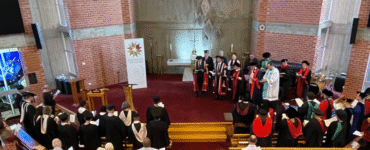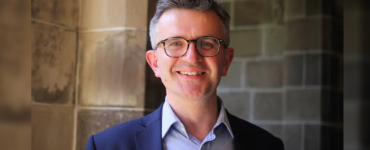There is a sign on an Alaskan highway that warns drivers about the limitations facing them ahead. It reads “Choose you rut carefully, as you will be in it for the next 60 miles” reflecting the deep ruts which previous travellers have created on the highway. It is a reminder to us that once we commit ourselves to a particular pathway, we are often stuck in it for longer than we imagined at the outset. The illusion of free choice allows us to think that we can change tack at any moment of our choosing. Life has its own way, however, of carrying us along on the back of decisions and commitments we have made which seem to make the tracks deeper the longer we travel them.
In this time of disruption, we are thrown out of those tracks and reminded how comfortable we find ourselves in them, even as we rail against the pressure and limitations they place upon us.
A former director of the Green Bay Packers once observed that “change is inevitable, except from a vending machine”, reminding us that change is unavoidable. Changes are generally experienced in one of two ways: changes which are welcomed, and those which are – at best – unexpected. Some of the changes we might look forward to include graduating from school, starting work, entering new relationships, and the birth of children. When we are younger, birthdays are something we look forward to, with particular milestones greatly anticipated. Unwelcome changes often involve a loss, or a change in long-held plans and dreams.
The reality is that change never comes smoothly, or in ways that we might reasonably expect.
I recall undergoing intense seasons of training as a young basketballer, only to find that aspects of my game seemed to go backwards for a few weeks. The new strength, speed or endurance often meant my sense of timing took time to adjust to meet the new ways my body was now able to function. While it might be tempting to think that the changes were counter-productive, they were in fact preparing my body in new ways, which I had to learn afresh.
It is this uneven and unexpected aspect of change that we are constantly asked to adapt to. Paul talks of the time when “we all reach unity in the faith and in the knowledge of the Son of God and become mature, attaining to the whole measure of the fullness of Christ” (Ephesians 4:13). To do so requires that we learn to adapt to change, some of which is welcome, other aspects unexpected, and others difficult. One cannot grow without change (though not all change is necessarily growth).
As we are thrown out of our ruts in this time, we need to recognise it as an opportunity for change, guided by reflection on what is important – which can be picked up again when this time is over, and what might need to be set aside and replaced with things we have discovered in this lockdown time. Whatever shape in which change appears, it is an invitation to become all that God has created and redeemed us to be.

Rev Dr Gary Heard is Academic Dean at Trinity College Theological School and senior lecturer in Pastoral Theology and Ministry studies.







This post has been immeasurably useful for me, thank you.